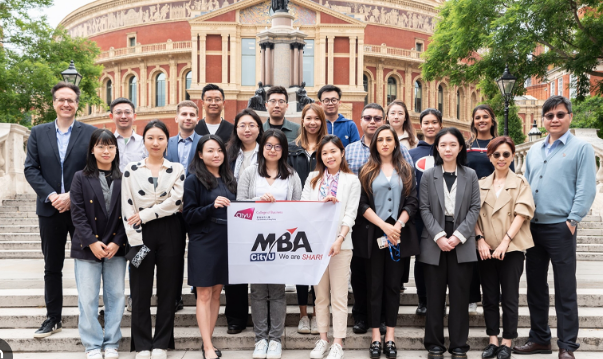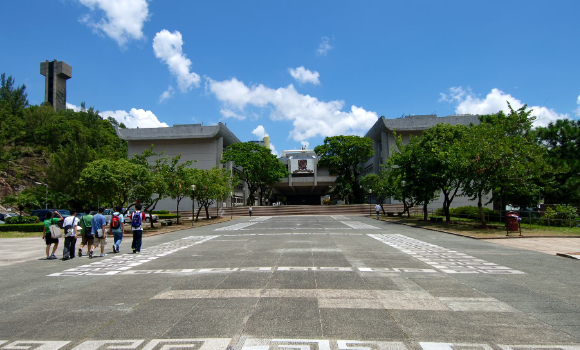An MBA in Hong Kong costs between HKD 300,000 to HKD 700,000, plus living expenses.
Table of Contents
Overview of MBA Programs in Hong Kong
Hong Kong, known for its dynamic economy and as a global financial hub, offers a wide range of MBA programs catering to diverse professional backgrounds and career aspirations. These programs are designed to equip students with the necessary skills to thrive in competitive business environments.

Types of MBA Programs Available
The city offers a plethora of MBA options, including:
- Full-Time MBA: Typically a 1-2 year program, designed for young professionals aiming to gain a comprehensive understanding of business management. Average tuition fees range from HKD 300,000 to HKD 600,000.
- Part-Time MBA: Ideal for working professionals, these programs offer flexibility and can be completed in 2-4 years. Costs are comparable to full-time programs, but the extended duration allows for income continuation.
- Executive MBA (EMBA): Aimed at senior executives, these programs focus on leadership and strategic decision-making. Tuition can soar up to HKD 700,000, reflecting the advanced career level and networking opportunities they provide.
Each program type offers unique advantages in terms of duration, depth of study, and networking opportunities. Prospective students should consider their career stage, financial capacity, and time commitment when choosing the right program.
Recognition and Accreditation of Hong Kong MBA Programs
Accreditation is a key factor in ensuring the quality and international recognition of an MBA degree. In Hong Kong, prominent accrediting bodies such as AACSB, AMBA, and EQUIS endorse many programs. These accreditations affirm the global standard of education, teaching quality, and the curriculum’s relevance to the current business landscape.
- AACSB (Association to Advance Collegiate Schools of Business): Ensures a high standard of teaching and curriculum relevance.
- AMBA (Association of MBAs): Focuses on the quality of executive programs, including EMBAs. The University of Hong Kong’s MBA program is a notable example.
- EQUIS (European Quality Improvement System): Assesses institutions as a whole, ensuring a high standard of business education.
Tuition and Fees for International Students
Hong Kong’s status as a global financial hub is mirrored in the caliber of its MBA programs. However, the prestige comes with a cost. International students must carefully assess the financial requirements of pursuing an MBA in Hong Kong, which includes tuition and additional mandatory fees.
Breakdown of Tuition Costs
Tuition fees for MBA programs in Hong Kong vary significantly based on the institution and type of program. On average:
- Full-Time MBA: The tuition fees can range between HKD 300,000 and HKD 600,000 for the entire program. Institutions like HKU Business School and CUHK Business School are at the forefront, offering comprehensive MBA programs.
- Part-Time MBA: These programs offer a flexible schedule for working professionals and usually cost similar to full-time programs, spread over 2 to 4 years.
- Executive MBA (EMBA): Designed for senior professionals, EMBA programs are priced higher, often exceeding HKD 700,000, reflective of the advanced curriculum and exclusive networking opportunities.
It is crucial for prospective students to factor in these costs when planning their education journey, ensuring they have the necessary financial resources or access to financial aid to support their studies.
Additional Mandatory Fees
Beyond tuition, international students must budget for additional mandatory fees, which can include:
- Registration Fee: A one-time fee required at the start of the program, typically around HKD 10,000 to HKD 20,000.
- Library Access and IT Services: Essential for academic research and coursework, these fees can amount to approximately HKD 5,000 annually.
- Student Association Fees: Contribute to student-led events and activities, costing around HKD 1,000 to HKD 3,000 per year.
Cost of Living in Hong Kong for International Students
Hong Kong, known for its vibrant city life and as a financial powerhouse, also ranks as one of the most expensive cities in the world. International students need to carefully consider their living expenses, including accommodation and daily expenses, to effectively manage their budget.
Accommodation Costs
Accommodation is a major portion of the monthly expenses for international students. The options vary widely, from university dormitories to private apartments, each with its own cost implications:
- University Dormitories: These are the most cost-effective option, with prices ranging from HKD 15,000 to HKD 30,000 per semester. Places like the University of Hong Kong offer on-campus housing options.
- Private Apartments: For those preferring privacy, a one-bedroom apartment in the city center can cost between HKD 15,000 and HKD 25,000 per month. Prices decrease significantly outside the city center.
- Shared Apartments: A popular choice among students, sharing an apartment can substantially reduce living expenses, with a room in a shared apartment costing between HKD 7,000 and HKD 12,000 per month.
Finding the right accommodation within your budget is crucial, as it directly impacts your monthly expenses and overall financial planning.
Daily Expenses (Food, Transportation, etc.)
In addition to accommodation, daily living costs in Hong Kong can add up quickly:
- Food: Eating out regularly can be expensive, with a meal at an inexpensive restaurant costing around HKD 50 to HKD 100. Conversely, cooking at home can significantly reduce food expenses.
- Transportation: Hong Kong’s public transport system is efficient and relatively affordable. A monthly pass for the MTR (Mass Transit Railway) costs around HKD 500 to HKD 700.
- Miscellaneous Expenses: This includes academic supplies, personal items, and social activities, which can vary greatly based on individual lifestyle choices.
Financial Aid and Scholarships for International Students
Pursuing an MBA in Hong Kong is a significant financial undertaking. Recognizing this, many institutions and external bodies offer financial aid and scholarships to international students to help alleviate the financial burden and promote academic excellence.
Scholarship Opportunities in Hong Kong Universities
Hong Kong universities are renowned for their generous scholarship programs, aiming to attract talented students from around the globe. These scholarships can cover a substantial part of the tuition fees, and in some cases, they may also provide a stipend for living expenses. Notable scholarships include:
- Merit-based Scholarships: These are awarded based on the student’s academic excellence, leadership qualities, and extracurricular achievements. Amounts can range from HKD 50,000 to full tuition coverage.
- Need-based Scholarships: Aimed at students who demonstrate a financial need, these scholarships ensure that talented students are not hindered by their financial background. Assessment criteria include family income, assets, and the cost of living in Hong Kong.
Applicants are encouraged to research and apply early for these scholarships, as competition is usually intense.
External Funding Sources and Eligibility
Apart from university-specific scholarships, various external organizations offer funding options for international students. These include:
- Government Scholarships: For instance, the Hong Kong Government offers the Hong Kong PhD Fellowship Scheme for PhD students, which can also be relevant for certain MBA research tracks.
- Private Foundations and Corporations: These bodies often offer scholarships or grants based on specific criteria, such as field of study, nationality, or leadership potential. Amounts and conditions vary widely.

Admission Requirements and Procedures for International Students
Gaining admission into an MBA program in Hong Kong is competitive and requires meticulous preparation. Universities set high standards to ensure they select candidates who can thrive in their rigorous academic environment and contribute significantly to the diverse student body.
Academic and Professional Prerequisites
Prospective students must demonstrate a strong academic background and relevant professional experience:
- Undergraduate Degree: A bachelor’s degree from a recognized university is a basic requirement. Most programs demand a good GPA, typically no less than 3.0 on a 4.0 scale.
- Work Experience: MBA programs in Hong Kong generally require applicants to have at least two to three years of full-time, post-graduate work experience. This ensures that students bring practical insights into the classroom, enhancing the learning experience for all.
- GMAT/GRE Scores: A valid GMAT or GRE score is often required, with competitive programs expecting scores in the upper percentiles. The average GMAT score for top programs can be around 600-700.
Language Proficiency and Other Requirements
Since the medium of instruction is English, non-native speakers must prove their language proficiency:
- TOEFL or IELTS: A high score in TOEFL (usually above 100 in the internet-based test) or an IELTS score of 7.0 or above is typically required. Some universities might have slightly different score requirements, so it’s crucial to check the specific requirements of each institution.
- Interviews: Many universities conduct interviews to assess the candidate’s motivations, leadership potential, and how they would fit into the program’s culture.
- Letters of Recommendation: Letters from academic or professional referees can provide insights into the applicant’s abilities, character, and suitability for the MBA program.
Career Prospects and ROI (Return on Investment)
An MBA from Hong Kong offers substantial career benefits and a significant return on investment.
Employment Opportunities Post-MBA in Hong Kong
Hong Kong’s strategic location and status as a global financial center make it a hotbed for career opportunities, especially for MBA graduates:
- Diverse Industries: Graduates can explore opportunities in various sectors such as finance, consulting, technology, and entrepreneurship.
- Networking Opportunities: The city’s vibrant business scene provides ample networking events, allowing graduates to connect with industry leaders and potential employers.
- Global Exposure: Many companies in Hong Kong operate on an international scale, offering employees exposure to global markets and practices.
Analysis of Salary Increase and Career Advancement Post-MBA
Investing in an MBA in Hong Kong typically yields a high ROI, evidenced by salary increases and career advancement opportunities:
- Salary Increase: Post-MBA salaries can see a significant jump, with some graduates reporting increases of up to 100% of their pre-MBA earnings.
- Career Advancement: An MBA degree often leads to enhanced job responsibilities, leadership positions, and the potential to significantly influence strategic business decisions.

